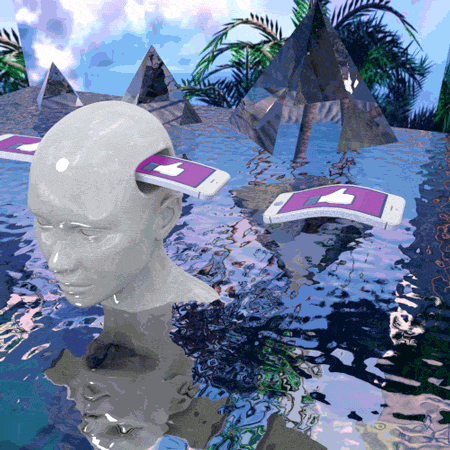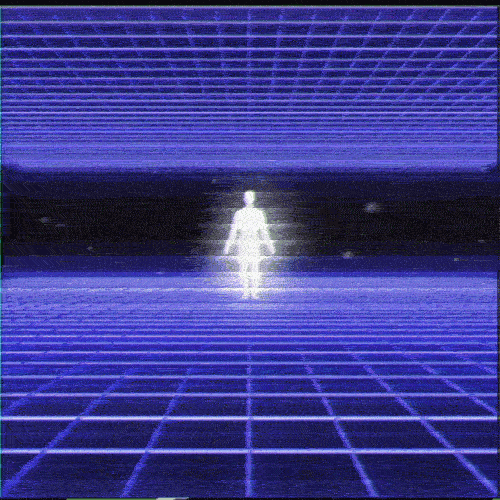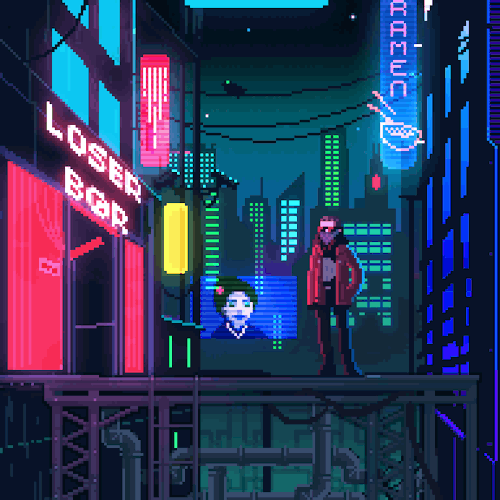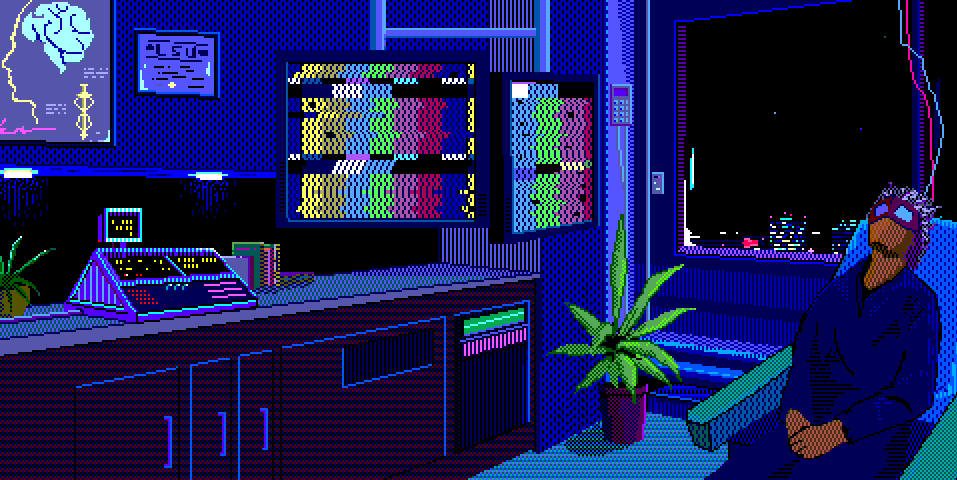Philosophy

Existentialism
Credit to Wikipedia
There are several categories of Existentialism, some of which include
Atheistic existentialism refers to the exclusion of any transcendental, metaphysical, or religious beliefs from philosophical existentialist thought. Nevertheless, it shares elements with religious existentialism and with metaphysical existentialism. Atheistic existentialism confronts death anxiety without appealing to a hope of somehow being saved by a God, and often without any appeal to alternate forms of supernatural salvation such as reincarnation. For some thinkers, existential malaise is mostly theoretical while others are quite affected by existential anguish.
Christian existentialism relies on Kierkegaard's understanding of Christianity. Kierkegaard argued that the universe is fundamentally paradoxical, and that its greatest paradox is the transcendent union of God and humans in the person of Jesus Christ. He also posited having a personal relationship with God that supersedes all prescribed moralities, social structures and communal norms,since he asserted that following social conventions is essentially a personal aesthetic choice made by individuals.
Kierkegaard proposed that each person must make independent choices, which then constitute his existence. Each person suffers from the anguish of indecision (whether knowingly or unknowingly) until he commits to a particular choice about the way to live. Kierkegaard also proposed three rubrics with which to understand the conditions that issue from distinct life choices: the aesthetic, the ethical, and the religious.
Existential nihilism is the philosophical theory that life has no intrinsic meaning or value. With respect to the universe, existential nihilism suggests that a single human or even the entire human species is insignificant, without purpose and unlikely to change in the totality of existence. According to the theory, each individual is an isolated being born into the universe, barred from knowing "why", yet compelled to invent meaning. The inherent meaninglessness of life is largely explored in the philosophical school of existentialism, where one can potentially create their own subjective "meaning" or "purpose". Of all types of nihilism, existential nihilism has received the most literary and philosophical attention.
The Theatre of the Absurd attacks the comfortable certainties of religious or political orthodoxy. It aims to shock its audience out of complacency, to bring it face to face with the harsh facts of the human situation as these writers see it. But the challenge behind this message is anything but one of despair. It is a challenge to accept the human condition as it is, in all its mystery and absurdity, and to bear it with dignity, nobly, responsibly; precisely because there are no easy solutions to the mysteries of existence, because ultimately man is alone in a meaningless world. The shedding of easy solutions, of comforting illusions, may be painful, but it leaves behind it a sense of freedom and relief. And that is why, in the last resort, the Theatre of the Absurd does not provoke tears of despair but the laughter of liberation.
The philosophy of cosmicism states that there is no recognizable divine presence, such as a god, in the universe, and that humans are particularly insignificant in the larger scheme of intergalactic existence, and perhaps are just a small species projecting their own mental idolatries onto the vast cosmos. This also suggests that the majority of undiscerning humanity are creatures with the relative significance of insects and plants, when compared to the universe.
Agnostic existentialism is a type of existentialism which makes no claim to know whether there is a "greater picture"; rather, it simply asserts that the greatest truth is that which the individual chooses to act upon. It feels that to know the greater picture, whether there is one or not, is impossible, or impossible so far, or of little value. Like the Christian existentialist, the agnostic existentialist believes existence is subjective.
Transhumanism is an international intellectual movement that aims to transform the human condition by developing and making widely available sophisticated technologies to greatly enhance human intellect and physiology. Transhumanist thinkers study the potential benefits and dangers of emerging technologies that could overcome fundamental human as well as ethical limitations of using such technologies.The most common transhumanist thesis is that human beings may eventually be able to transform themselves into different beings with abilities so greatly expanded from the natural condition as to merit the label of posthuman beings
Transhumanism also ties in with the Technological Singularity, obtainable through Artificial Intelligence or Machine Learning.

Technoligical Singularity
Credit to Wikipedia
The technological singularity is the hypothesis that the invention of artificial superintelligence will abruptly trigger runaway technological growth, resulting in unfathomable changes to human civilization. According to this hypothesis, an upgradeable intelligent agent (such as a computer running software-based artificial general intelligence) would enter a "runaway reaction" of self-improvement cycles, with each new and more intelligent generation appearing more and more rapidly, causing an intelligence explosion and resulting in a powerful superintelligence that would, qualitatively, far surpass all human intelligence. John von Neumann first used the term "singularity", in the context of technological progress causing accelerating change: "The accelerating progress of technology and changes in the mode of human life, give the appearance of approaching some essential singularity in the history of the race beyond which human affairs, as we know them, could not continue". Subsequent authors have echoed this viewpoint. I. J. Good's "intelligence explosion" model predicts that a future superintelligence will trigger a singularity. Emeritus professor of computer science at San Diego State University and science fiction author Vernor Vinge said in his 1993 essay The Coming Technological Singularity that this would signal the end of the human era, as the new superintelligence would continue to upgrade itself and would advance technologically at an incomprehensible rate.

Immortality
Post Singularity: Part I
Credit to Futurism
For humans, we are still very far from the possibility of achieving immortality (or anything remotely close to it). However, we're continuously extending our lifespan, and as scientists work on the potential to overcome aging, longevity research has come into vogue. As science, medicine, and technology all bloom (and those able to invest in biotechnology age), more and more entrepreneurs are focusing on mortality and longevity. And currently, signs of progress in the quest to extend human life are everywhere. Nations such as Japan are redefining what "elderly" means as more citizens pass retirement age and fewer families have children. One group of scientists is even pushing to have aging itself reclassified as a disease, and there is an ongoing debate in the community about whether there is ultimately a limit to how long humans can live.
Startups combining longevity and artificial intelligence (AI) research to find a "cure" for aging are gaining traction and funding. Human Longevity Inc. (HLI) was able to raise hundreds of millions of dollars for its genome project and some Silicon Valley innovators even see death as "optional." Of course, no one really wants to live forever if they're sick in bed, or devastatingly tired or suffering in too much pain to enjoy their extra time. Tacking on extra years or even decades might not be worth it if those spans of time are filled with severe Alzheimer's disease, diabetes, cancer, heart disease, and arthritis. Researchers are now exploring longevity in new ways and changing how we think about aging. They are focusing on the health span rather than the lifespan alone, and on how to care for neurons, mitochondria, and other components of the human body that appear to control how we cope (or fail to cope) with age and disease.

Digital Immortality
Credit to Wikipedia
Digital immortality (or "virtual immortality") is the hypothetical concept of storing (or transferring) a person's personality in more durable media, i.e., a computer, and allowing it to communicate with people in the future. The result might look like an avatar behaving, reacting, and thinking like a person on the basis of that person's digital archive. After the death of the individual, this avatar could remain static or continue to learn and develop autonomously. A considerable portion of transhumanists and singularitarians place great hope into the belief that they may become immortal by the year 2045, by creating one or many non-biological functional copies of their brains, thereby leaving their "biological shell". These copies may then "live eternally" in a version of digital "heaven" or paradise.

Simulated Reality
Credit to Wikipedia
Simulated reality is the hypothesis that reality could be simulated - for example by computer simulation - to a degree indistinguishable from "true" reality. It could contain conscious minds which may or may not be fully aware that they are living inside a simulation. This is quite different from the current, technologically achievable concept of virtual reality. Virtual reality is easily distinguished from the experience of actuality; participants are never in doubt about the nature of what they experience. Simulated reality, by contrast, would be hard or impossible to separate from "true" reality. There has been much debate over this topic, ranging from philosophical discourse to practical applications in computing.

Simulation Argument
Credit to Wikipedia
The simulation hypothesis was first published by Hans Moravec. Later, the philosopher Nick Bostrom developed an expanded argument examining the probability of our reality being a simulation. His argument states that at least one of the following statements is very likely to be true:
Human civilization is unlikely to reach a level of technological maturity capable of producing simulated realities or such simulations are physically impossible to construct.
A comparable civilization reaching aforementioned technological status will likely not produce a significant number of simulated realities (one that might push the probable existence of digital entities beyond the probable number of "real" entities in a Universe) for any of a number of reasons, such as, diversion of computational processing power for other tasks, ethical considerations of holding entities captive in simulated realities, etc.
Any entities with our general set of experiences are almost certainly living in a simulation. In greater detail, Bostrom is attempting to prove a tripartite disjunction, that at least one of these propositions must be true. His argument rests on the premise that given sufficiently advanced technology, it is possible to represent the populated surface of the Earth without recourse to digital physics; that the qualia experienced by a simulated consciousness are comparable or equivalent to those of a naturally occurring human consciousness; and that one or more levels of simulation within simulations would be feasible given only a modest expenditure of computational resources in the real world.
If one assumes first that humans will not be destroyed nor destroy themselves before developing such a technology, and, next, that human descendants will have no overriding legal restrictions or moral compunctions against simulating biospheres or their own historical biosphere, then it would be unreasonable to count ourselves among the small minority of genuine organisms who, sooner or later, will be vastly outnumbered by artificial simulations.
Epistemologically, it is not impossible to tell whether we are living in a simulation. For example, Bostrom suggests that a window could pop up saying: "You are living in a simulation. Click here for more information." However, imperfections in a simulated environment might be difficult for the native inhabitants to identify and for purposes of authenticity, even the simulated memory of a blatant revelation might be purged programmatically. Nonetheless, should any evidence come to light, either for or against the skeptical hypothesis, it would radically alter the aforementioned probability.
